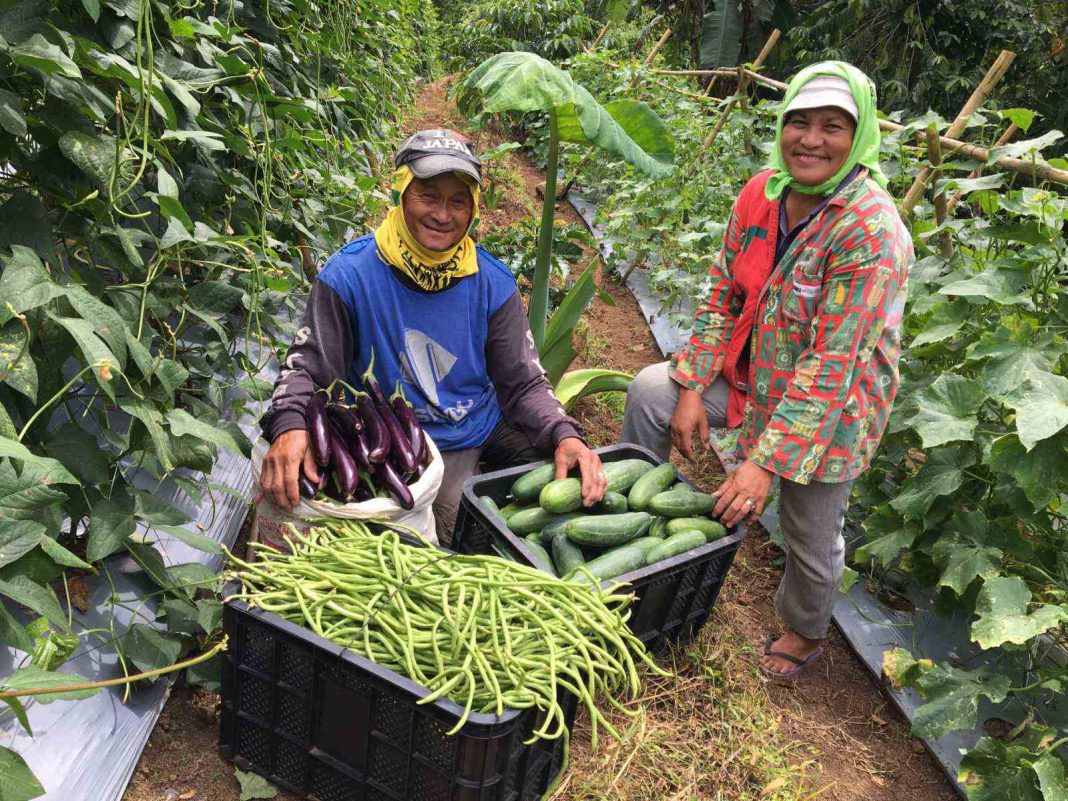East West Seed Philippines commits to training to help them achieve higher income and improved livelihoods
As one of the world’s leading vegetable seed companies, East-West Seed commits to providing intensive training and exposure of smallholder farmers in the Philippines to profitable and sustainable cultivation techniques through its East-West Seed Knowledge Transfer Program (EWS-KT).
EWS-KT was established to improve the livelihoods of smallholder farmers in less-developed areas by creating opportunities for income generation, development of competitive agri-input markets, and the increase of the availability of safe-to-eat and affordable vegetables for consumers in rural areas.

“East-West Seed has always been committed to uplifting the lives of smallholder farmers and improving their livelihood not only through the provision of vegetable seeds but as well as through technical skills training and best practices through our Knowledge Transfer Program. We continue to work together with our key partners from the private and public sectors to incorporate Good Agricultural Practices in the farmers we work with and support,” states Girlie Banaña, East-West Seed Philippines Knowledge Transfer Manager.
PAG-AHON Project in Nueva Ecija
The Philippine Department of Agriculture implements its National Crop Diversification program that helps rice farmers diversify their crops and reduce their dependence on a single crop. EWS-KT supports this by implementing various projects that focus on crop diversification, one of which is the Sa Palay at Gulay, May Asenso, Hanapbuhay, Oportunidad at Nutrisyon (PAG-AHON) project with the Department of Agriculture – Philippine Rice Research Institute (PhilRice), LGU of Lupao in Nueva Ecija, and Lupao Vegetable Growers’ Association (LVGA) that began in May 2020. The program will run until December 2021 to empower Nueva Ecija farmers to gain better skills, yield, and income.
The first and second phases of the project trained 89 key farmers not only on vegetable production but also on financial literacy and sustainable market linkages. These key farmers were linked to markets like Dizon Farms, Zagana, Ateneo Foundation and NutriAsia. To add, around 1,975 rice farmers were also given a short-duration training on sustainable practices and vegetable production technologies through EWS’ Technical Field Day.
Integrated Coffee-Vegetable Farming Systems Project in Bukidnon
EWS has also partnered with Deutsche Gesellschaft für Internationale Zusammenarbeit (GIZ) GmbH and Nestle Philippines in 2019 to scale up the implementation of an integrated coffee-vegetable farming systems in Bukidnon.
The first phase covered the establishment of coffee-vegetable production areas under the management of four Coffee Ambassadors and a set-up of a demo-farm that served as a learning site in Malaybalay City. Spanning July to December 2021, the second phase aims to assist 10 coffee growers in the municipality of Pangantucan by providing trainings on vegetable production, farm input support, and market linkages.
Coconut-Vegetable Cash Crop Project in Laguna, Quezon and Bicol
To initiate a pandemic response early this year, EWS has also partnered with Deutsche Gesellschaft für Internationale Zusammenarbeit (GIZ) GmbH and Franklin Baker Company of the Philippines to distribute seeds, fertilizers, and other farm inputs to 350 coconut farmers in Laguna, Quezon, and Camarines Norte.
Developing Vegetable Value Chains to Meet Evolving Market Expectations in the Philippines
This project is done in partnership with the Australian Center for International Agricultural Research (ACIAR) to develop a vegetable value chain in Leyte and Bukidnon to assist 30 key farmers on PhilGAP-anchored vegetable production, adoption of PhilGAP protocols and the application of select key farmers for the PhilGAP certification . This project pilots the value chain support to establish a sustainable market access for smallholder farmers.
Reaching More Filipino Farmers and Home Gardeners
To date, the EWS-KT program has been able to provide over 540,000 farmers and home gardeners access to online tools and digital training modules to help them in vegetable production. Meanwhile, a total of 106,775 farmers have been trained through various face-to-face training and projects since the onset of the pandemic in 2020.
First launched in 1999 as Tested Technology Transfer, EWS-KT has already directly trained over 70,000 of farmers on-ground prior to the pandemic. The Knowledge Transfer program was completed in 13 regions in the country spanning regions I, II, III, IV-A, IV-B, V, VI, VII, IX, XI, XII, XIII, and BAMM while it is currently running in Regions VIII and X.
The Knowledge Transfer program commits to training farmers with verified best practices to help them achieve higher incomes and improve their livelihoods to help drive the local economy. Projects are implemented through the help of corporations and companies in funding the roll-out of trainings across specific communities in the Philippines. Interested companies can visit https://kt.eastwestseed.com/aboutus/organization to learn more about how to inquire, deploy and implement the Knowledge Transfer program in their desired communities.
Learn more about how EWS works together with smallholder farmers and communities in the Philippines to promote food security and better nutrition by visiting https://ph.eastwestseed.com.














